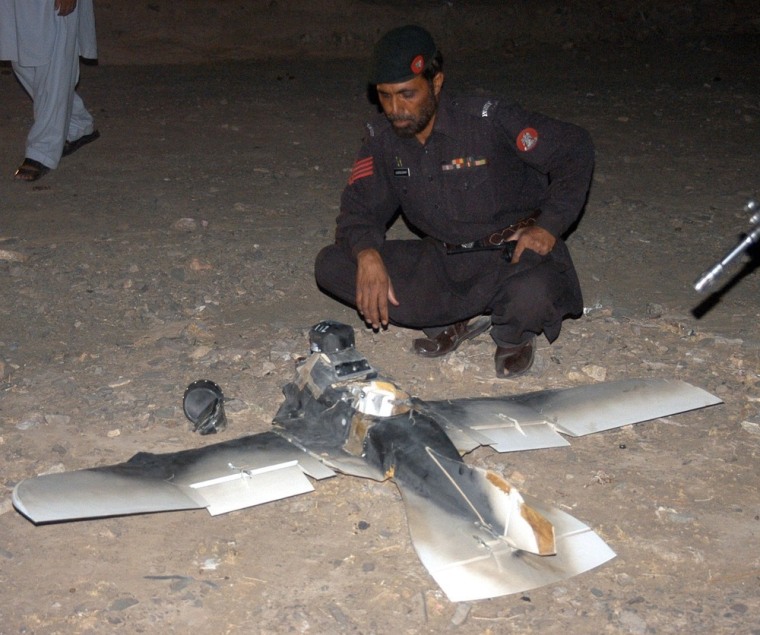A United Nations investigator will open an inquiry into civilian deaths at the hands of American drones.
UN Special Rapporteur Ben Emmerson said he planned on "launching an investigation unit within the special procedures of the Human Rights Council to inquire into individual drone attacks and other forms of targeted killing conducted in counter-terrorism operations, in which it is alleged that civilian casualties have been inflicted," according to prepared remarks for a speech he delivered at Harvard Law School's International Human Rights Clinic.
Emmerson said he and colleague Christof Heyns would also "seek explanations" for the use of this technology beginning early next year from Geneva.
Though it has barely factored into the presidential election, the Obama administration's reliance on predator drones has long been the subject of harsh criticism from civil libertarians.
Getting accurate numbers on the total body count is difficult, but the Bureau of Investigative Journalism estimates that at least 2,595 lives have been claimed by American drones in Pakistan alone, of which between 474 and 885 were civilians.
A report by human rights lawyers at New York University and Stanford's law schools last month argued that civilians in the drone-scarred regions of northern Pakistan suffer severe psychological, educational, economic and political consequences.
Stanford Law School Professor James Cavallaro, one of the report's lead researchers and editors, described Emmerson's announcement as "welcome news."
"There are a lot of issues that need to be examined, and we welcome very much the UN establishing a unit to investigate these issues," he told msnbc.com. "And we certainly look forward to collaborating with them."
Cavallaro also recommended that the UN investigate how the United States classifies "militants" killed in drone strikes, as sources have told The New York Times that the government "in effect counts all military-age males in a strike zone as combatants...unless there is explicit intelligence posthumously proving them innocent."
The impact of the investigation could change the tone of conversation on drones, but the legal implications are unclear.
"Sometimes it's not clear what the implications are of these investigations," added Professor Eric Posner of the University of Chicago Law School. "I am pretty confident that the Council cannot issue a legally binding order, in the sense of giving the U.S. government a legal obligation to stop its drone attacks," he said.
But Cavallaro suggested the Council's findings might constrain the administration's ability to continue its drone campaign and represent a first step in limiting the use of drones.
"The fact that the United States would not be able to allege that drone strikes are fully in compliance with international law would be significant," he said. "Throughout history you've got a repeating phenomenon in which technology tends to come first and then later international law comes behind. The shorter the lag, the better."
Posner, who believes the drone campaign in Pakistan is illegal, remained skeptical.
"I think many governments would like to do what the United States is doing," he said. "So they're not going to sign on to a rule that says this is a violation of international law," he said. "But I just don't know."
The Obama administration asserts that its drone campaign is legal, although many of the official legal justifications for specific targeted killings remain shrouded in secrecy.
Obama surrogates have often been evasive when questioned. Civil libertarian activists recently confronted senior Obama campaign adviser and former White House press secretary Robert Gibbs about the alleged killing by drone of American citizen Abdulrahman Al-Aulaqi, the 16-year old son of terror suspect Anwar Al-Aulaqi. Abdulrahman, said Gibbs, ""should have [had] a far more responsible father."
Such a statement from a former administration official "raises very serious concerns, to put it mildly, about United States policies and their compliance with international law," said Cavallaro.
